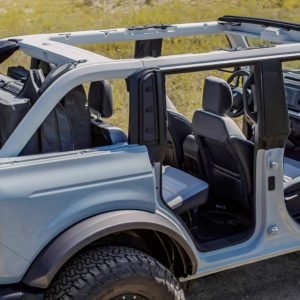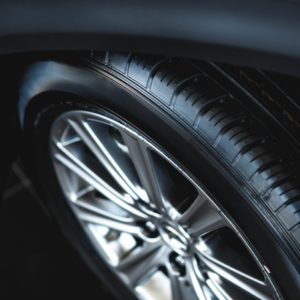Despite the rise of sophisticated anti-collision technology and automatic braking systems, your vehicle’s safety still relies heavily on a simple set of parts that’s often overlooked—your tires.Choosing the right set of tires can significantly improve your vehicle’s performance and provide the reliability you need for the type of weather you will be driving in.
Just as you transition your wardrobe to accommodate the colder months ahead, you should also consider fitting your vehicle with the best tires for snow and ice.
Finding the best winter tires can be daunting, especially with the vast selection and sizes available. To better understand why you need to think about making the switch as early as now, let’s do a quick overview of what types of tires are available and how you can differentiate them from one another.

3 Common Types of Tires
When shopping for a new set of tires, it helps to know the type and size you currently have on your vehicle. Simply look at the sidewall of your tires to find out their brand, model, size, and speed rating. Having this information handy will make it easier to find a set that matches your vehicle.
Summer Tires
Differentiating summer tires from all-season tires can be quite tricky. Also known as three-season tires, one way to tell these two apart is that summer tires do not carry a mud and snow (M&S) designation on its sidewall. These are also more commonly seen on vehicles with higher speed ratings.
Summer tires are known for their excellent dry grip but may wear down faster than all-season tires. Touring and high-performance versions of summer tires are also available. While they are great for dry roads, summer tires are known to lose their flexibility in colder weather, making them unfit for winter driving.

Summer tires are known for their excellent dry grip but may wear down faster than all-season tires. While they are great for dry roads, summer tires are known to lose their flexibility in colder weather, making them unfit for winter driving.
Touring and high-performance versions of summer tires are also available.
All-Season Tires
All-season tires are meant to perform in a variety of road and weather conditions. These are a budget-friendly option, often preferred by those who drive compact and subcompact cars.
Apart from the standard all-season tires, you may also find performance all-season tires that provide better tread life and traction for vehicles with more horsepower. If smooth and quiet commutes are a priority for you, touring all-season tires may be a good choice.
Contrary to its name, all-season tires are not recommended for heavy snow and ice.
Snow Tires or Winter Tires
Winter tires, also commonly referred to as snow tires, are made from a flexible rubber compound that performs best in low to freezing temperatures. These can be identified by a mountain/snowflake symbol on the tire’s sidewall.
Winter tires feature aggressive tread patterns with grooves, channels, and biting edges that provide better grip and road traction.
What’s the Difference Between All-Season and Winter Tires?
If you currently have a set of all-season tires on your vehicle, you may be wondering whether it’s necessary to swap them out for winter tires. Despite its name, all-season tires are not recommended to be used year-round.
You may not have any problems driving all-season tires on very light snow, but on slippery frosted pavements or slushy and snowy roads, they could be a recipe for disaster.
Here are some of the reasons why you should consider switching to snow tires as temperatures drop.

Tire Composition
The key to tire traction and mobility is in the material’s flexibility. As temperatures grow colder, the rubber compounds used in all-season tires become more rigid and inelastic once temperatures reach 45˚F.
On the other hand, winter tires are made of special rubber compounds that contain a large amount of silica. This material allows the tires to remain pliable in cold or freezing temperatures.
Tread Design
All-season tires lack the traction needed to safely navigate your car in snowy and icy conditions. Winter tires have larger tread, more sipes, and biting edges that dig into snow and push slush away from the tire’s contact patch.
Performance on Snow and Ice
Ice can be a critical road hazard, especially when there is a film of water on top of it. This combination can make the surface of the road extremely slippery, reducing your vehicle’s braking performance. Having winter tires significantly reduces your stopping distance while braking on ice and provides a better grip while traveling on snow. Another advantage over all-season tires is that snow tires can come in studded designs that feature metal studs that allow the tires to claw through the ice for better grip.
When Should You Put Winter Tires on Your Car?
Knowing when to put on winter tires can be tricky. Some suggest changing to snow tires right before Thanksgiving and switching back to summer or all-season tires around Easter. But since season transitions can be unpredictable, a good rule of thumb is to switch to winter tires as soon as you notice temperatures hovering around 45˚F.
Keep in mind that even if the average daily temperatures read higher, you may want to switch tires sooner if you typically drive during early mornings or late at night, as temperatures tend to drop significantly during these times.

How Long Do Winter Tires Last?
If you live anywhere above the Mason-Dixon line, having a good set of winter tires that you can rely on for five months or more is a must.
The expected lifespan of winter tires is a little different compared to summer or all-season tires. Due to its performance and use in extreme weather, winter tires are expected to wear out more quickly than other types of tires.
How you store these tires after use can significantly affect their lifespan. It is recommended that you store your winter tires in a cool, dry place, away from sunlight. You may put towels in between the tires before stacking or wrap each tire individually. If stored properly, you can expect to reuse your tires for two to three subsequent winters.
Also, keep in mind that specific road conditions as well as your driving style may affect the level of tread wear you can expect from your snow tires.
Any information provided on this Website is for informational purposes only and is not intended to replace consultation with a professional mechanic. The accuracy and timeliness of the information may change from the time of publication.



















